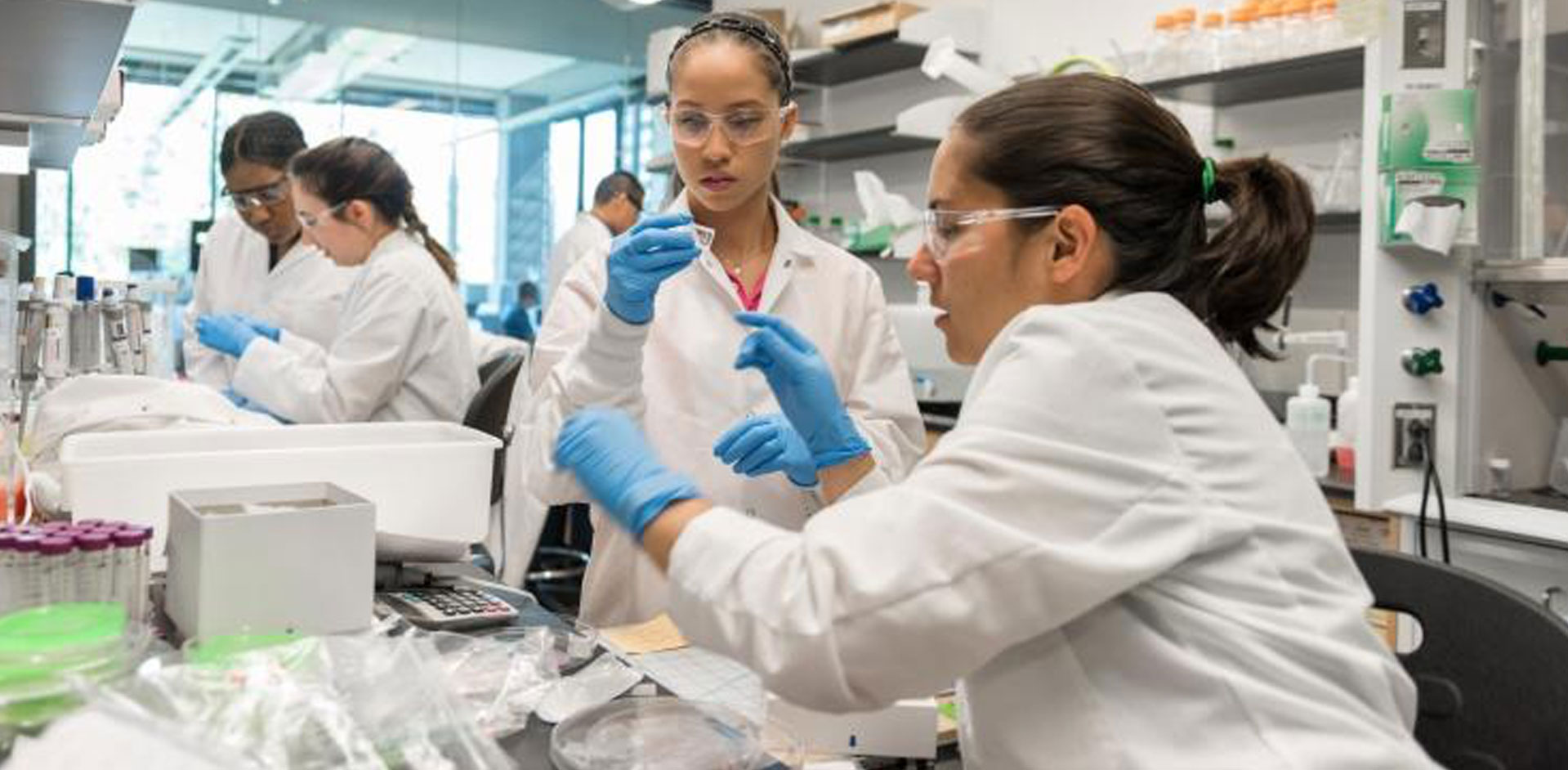Broadening Data Science Education for Future Biomanufacturing Workforce Workshop Report
A key need for industry and practitioners in cell manufacturing is a well-trained workforce – both entry-level trainees and advanced-degree trainees.
Currently CMaT has a range of trainees including postdocs, grad students, undergrad students, high school students and teachers, and technical college students and teachers.
CMaT’s workforce development program is designed to achieve four overarching goals:
1. Train a group of undergraduate and graduate engineers with key technical and professional skills.
2. Prepare technical colleges and pre-college students for careers in the biomanufacturing industry.
3. Use excitement surrounding cell therapies to stimulate interest in research career pathways.
4. Expand the education of students
Graduate-level Trainee Competencies
Experimental design, implementation, and analysis | Practical Application | Professional Skills |
- Design experiments with appropriate quality controls, statistical power, and number of replicates.
- Apply univariate or multivariate statistical analysis to experimental data.
- Assess differences between various culture conditions, including single cell vs. bulk/population analyses and bench scale vs. industrial scale manufacturing.
- Identify assays for monitoring CQA during cell manufacturing processes.
- Distinguish cell-type specific constraints on the use of various bioprocess platforms and analytical methods
| - Understand project management and planning, supply chain models and their analysis.
- Explain the issues pertinent to industry as they relate to regulatory affairs and GMP for cell therapies.
| - Understand current and past legal, political, ethical, and social issues related to cell therapies.
- Demonstrate cultural sensitivity.
- Be knowledgeable of international and domestic regulatory policies and ethics.
- Communicate scientific and technical information to lay audiences
|

